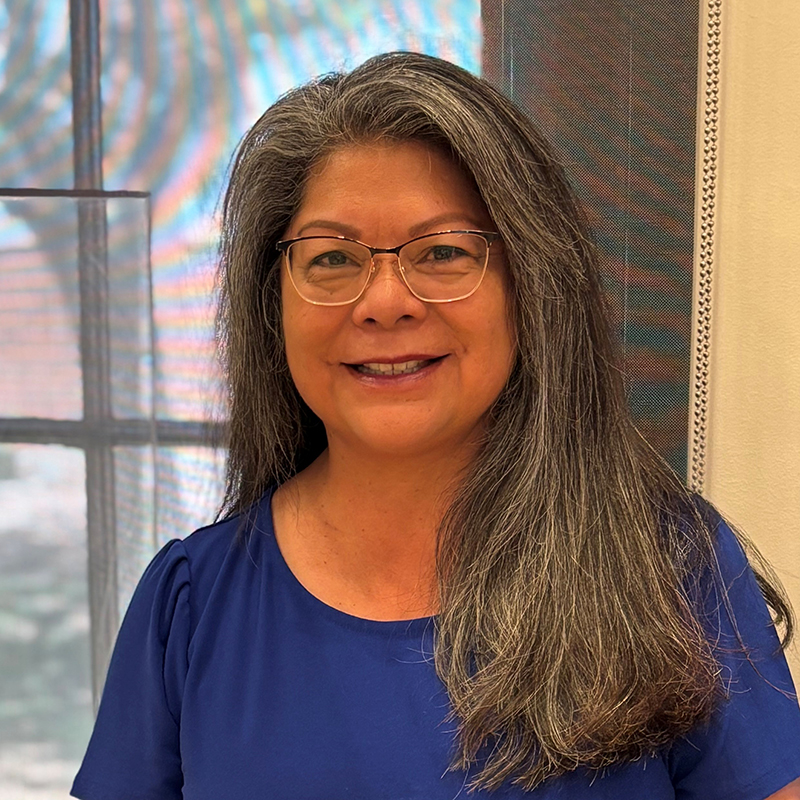Join Elena Selestewa and Patty Talahongva as they discuss historical trauma stemming from boarding school experiences, and honor the resiliency of Indigenous Peoples.
Reflect on the American Indian Boarding School experience with guest speakers Elena Selestewa (Hopi), Visitors Center Specialist at the Phoenix Indian School Visitors Center, and boarding school survivor Patty Talahongva (Hopi), Chief Programming and Engagement Officer at the Heard Museum — who will share their personal histories and connections to Boarding Schools.
Throughout the program, guests will be invited to journal using provided materials, reflecting on prompts such as:
– How does the Boarding School experience connect to you?
– What is the hardest part of this history for you?
– How do you heal?
– What does it mean to be away from home?
This program is presented in recognition of the Day of Remembrance for U.S. Indian Boarding Schools, also known as Orange Shirt Day—a time to honor and remember the children taken from their families and placed in residential schools. Guests are encouraged to wear orange as a visible act of solidarity and to help raise awareness.
Books from influential Indigenous authors about the Boarding School experience are available for purchase in Books & More. Heard Museum Members receive a 10% discount.
Schedule
10:05 a.m.
Gather outside of Away from Home: American Indian Boarding School Stories for brief opening remarks
10:15 a.m.
Explore Away from Home: American Indian Boarding School Stories before the panel discussion
11:15 a.m.
Panel Discussion with Elena Selestewa (Hopi) and Patty Talahongva (Hopi) in the Monte Vista Room, moderated by Ann Marshall, Director of Research at the Heard Museum
Featured Speakers

Elena Selestewa is an enrolled member of the Hopi Tribe from Polacca, Arizona. She also has Navajo, Laguna, and Zuni heritage and currently resides in Phoenix, Arizona. Elena works for Native American Connections as the Visitor Center Specialist at the Phoenix Indian School Visitor Center.

Patty Talahongva is the Chief Programming & Engagement Officer at the Heard Museum. As a journalist with 45+ years of experience, she was the first Native American anchor of a national news program, and is currently writing a book about her family’s experience at the Phoenix Indian School.
About the Phoenix Indian School Visitor Center
The Phoenix Indian Industrial School, known as the Phoenix Indian School in later years, was established in 1891, operating as a boarding school for American Indian children by the Bureau of Indian Affairs. Initially focused on forced assimilation of Native American children into mainstream American culture, it later transitioned into a traditional high school, and its history is marked by both trauma and resilience. The school served as a site of cultural suppression and, later, a place where students began to reclaim their heritage. Located at the corner of Central Avenue and Indian School Road, much of this site was transferred to the City of Phoenix from the Bureau of Indian Affairs in 1990, which the city used to create Steele Indian School Park. Since its closing, Phoenix has saved three historic buildings and placed them on the National Register of Historic Places. One of those historic buildings, the former grammar school building, is the same building Native American Connections and Phoenix Indian Center has renovated and transformed into the Phoenix Indian School Visitor Center — which offers a historic gallery, individual and group tours, educational programming, and conference and event spaces to the community.
What is Orange Shirt Day?
Orange Shirt Day, observed on September 30, honors the Indigenous children taken from their families and placed in residential and boarding schools. The day began with the story of Phyllis (Jack) Webstad, whose new orange shirt—gifted by her grandmother—was taken from her on her first day at St. Joseph’s Mission Residential School in British Columbia. Her experience reflects the broader history of Indigenous children across Turtle Island who were stripped of their identities, languages, and cultures. The orange shirt has become a powerful symbol that Every Child Matters—and a call to remember these histories, honor the resilience of survivors, and commit to truth-telling and reconciliation.
Our sponsors
Programming Partner